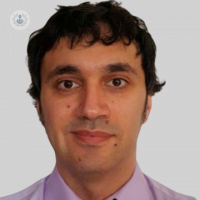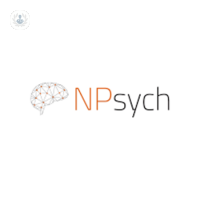Acquired brain injury
Dr Margareta Griesz-Brisson - Neurology
Created on: 08-27-2013
Updated on: 09-18-2023
Edited by: Sophie Kennedy
Acquired brain injury, often abbreviated to ABI, refers to damage sustained to the brain at any time during a person’s lifetime, as opposed to a genetic or congenital disorder or damage occurring while in the womb. An acquired brain injury can have temporary or permanent effects on a person, causing impairments in cognitive, physical, emotional and behavioural functioning.

Acquired brain injury is usually broken down into two forms, each with a number of different causes associated. The two forms are:
Traumatic brain injury (TBI)
A TBI is any form of sudden physical damage to the brain. This can be caused by any number of ways, such as a closed head injury, which is when the head forcefully impacts with an object. This could be due falling, sports injury, violent crime, or most commonly a motor vehicle accident. Another type of traumatic brain injury is called a penetrating head injury, which is caused by an object piercing the skull and damaging the brain, such as a gunshot wound.
Non-traumatic brain injury
A non-traumatic brain injury is one caused by an illness or through substance abuse. For example, conditions such as stroke, brain tumours, lack of oxygen, brain haemorrhage, encephalitis, poisoning, alcohol or drug abuse, to name but a few of the possibilities.
What can acquired brain injury lead to?
An acquired brain injury can lead to any number of detrimental effects on the person, depending on the position of the injury on the brain and the severity of the injury. Examples of the kinds of effects that an acquired brain injury can cause include physical changes such as problems walking, standing, sitting.
They may also include cognitive changes such as problems with vision or hearing, decision making, comprehension, becoming easily distracted, affecting judgement, and confusion. There may also be emotional changes such as depression, anxiety, anger management problems, sadness and frustration. The person may also suffer chronic pain such as multiple headaches.
How are acquired brain injuries managed?
There is not a single comprehensive way that acquired brain injuries are treated. Treatment depends on the injury, the symptoms, and also the age of the patient, as paediatric acquired brain injury may be treated much differently.
The patient will have to go through a bespoke, multidisciplinary rehabilitation programme to attempt to improve on any functions lost due to the injury. A number of specialists will be required, depending on the extent of the symptoms, these specialists can include physiotherapists, occupational therapists, speech and language therapists, psychologists, and pain specialists.
As children’s brains are still developing, the approach to paediatric acquired brain injuries may differ. Because the brain is still in development, some of the injuries may not appear until later in the child’s life as the brain continues to develop.









